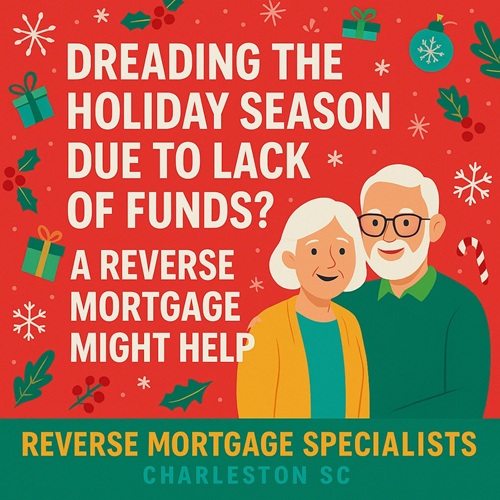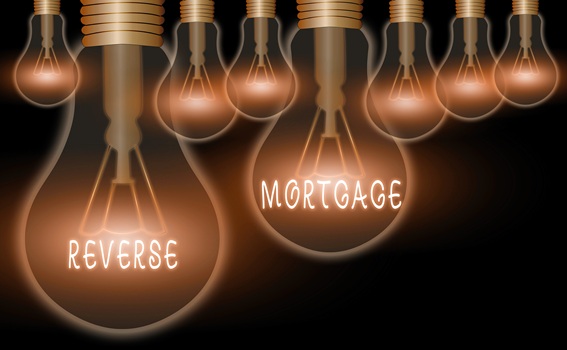
Retirement plan in Charleston SC
Retirement brings a time of reflection, change, and careful planning, especially when you’re trying to protect your lifestyle without stretching your savings too thin. A reverse mortgage can give homeowners more options during this stage, particularly when you want predictable stability without sacrificing comfort. Many retirees choose this solution because it allows them to access equity while staying in the home they love, and the financial relief it provides can be especially meaningful for those living in Charleston SC.
Although every financial situation is different, one thing remains true for most people: reliable income matters. Since a reverse mortgage does not require monthly repayment as long as the loan rules are followed, it may help create more room in your budget. Because of this flexibility, homeowners often feel more prepared to manage unexpected costs while still enjoying day-to-day life.
Additionally, plenty of retirees still want to assist loved ones, whether through shared experiences or meaningful financial support. Using home equity wisely may help create opportunities to do both. With thoughtful guidance, a reverse mortgage can become a practical part of that plan, and South Carolina Reverse Mortgage Services frequently helps homeowners assess how this option fits into their long-term goals.
How a Reverse Mortgage Works During Retirement
A reverse mortgage is designed for qualifying homeowners who want to convert a portion of their home’s value into usable funds. Unlike traditional loans, repayment generally happens later, usually when the homeowner moves or the home is sold. Although interest accumulates, many people appreciate that their monthly budget remains unaffected since no payment is required as long as the loan terms are met.
Understanding how the loan functions is essential because the right approach can create lasting financial stability. Since home value conversion calculations depend on factors such as age, equity, and available loan programs, this step requires careful evaluation. Clear planning helps confirm whether this option aligns with future needs, especially during retirement income planning.
Furthermore, many households in Charleston SC want to know how much they may access before making a final decision. Because every home and financial situation is different, the best course of action is a consultation with a specialist who can explain each detail. South Carolina Reverse Mortgage Services assists homeowners with these assessments so they can make informed decisions with confidence.
Why a Reverse Mortgage Offers Unique Confidence for Retirees
People approaching retirement often look for stability, and a reverse mortgage can provide just that. Since it helps eliminate monthly mortgage obligations, homeowners typically find it easier to manage essential costs. This extra comfort often gives retirees more room for health needs, hobbies, or personal travel. It can also support housing wealth flexibility programs that make long-term planning easier.
Because a mortgage-free living strategy can help reduce pressure on personal savings, homeowners may feel more financially secure. Retirees who may face unpredictable expenses often benefit from having additional resources available. Whether they use it for home updates, medical care, or lifestyle improvements, this flexibility can create reassurance throughout retirement.
Many people also choose this option because it may allow them to help adult children or grandchildren during important milestones. While financial gifts must always be considered carefully, having more choices often brings peace of mind. When planned effectively, senior equity access Charleston strategies can support both personal and family goals.
Key Considerations Before Moving Forward With a Reverse Mortgage

Reverse mortgage in Charleston SC
Even though a reverse mortgage offers several advantages, thoughtful preparation is essential. Before moving ahead, homeowners should take time to assess their financial picture, including income, taxes, and property-related expenses. Reviewing each detail helps ensure the choice matches long-term expectations for comfort and security.
Understanding eligibility and responsibilities also matters. Although a reverse mortgage in Charleston SC does not require monthly repayment, you must stay current on taxes, insurance, and upkeep. Being aware of these conditions protects you from surprises later. Because this is a long-term decision, clear guidance is helpful, especially when exploring mortgage-free living strategy options.
Long-term equity considerations should also be reviewed with family members. Since loan balances grow over time, remaining aware of how they impact future inheritance is important. Discussing your overall housing wealth flexibility programs can help align expectations and avoid future misunderstandings. With the right planning, retirees can enjoy the benefits of this option while maintaining clarity about the long-term effects.
Understanding How Much You Can Receive From a Reverse Mortgage
The amount borrowers receive from a reverse mortgage depends on several key factors, including age, interest rates, and property value. Although estimates vary, many homeowners may access a significant portion of their equity. Because Charleston SC has a diverse property market, values differ widely across neighborhoods, and staying aware of these shifts is important.
Homeowners may choose the type of payout that best suits their retirement income planning. Options may include a lump sum, regular payments, or a credit line. Each method supports different goals, and selecting the right one ensures long-term comfort. With clear guidance, seniors often find the structure that best fits their needs and enhances overall stability.
As you consider your options, a detailed consultation can help determine your potential borrowing limit. This process allows you to understand how senior equity solutions might support your goals, especially if you’re planning to age comfortably in your home. Local insight can also help ensure you select an option that supports both short- and long-term priorities.
FAQs
How does a reverse mortgage affect the ownership of my home?
You retain full ownership as long as you meet all loan obligations, including taxes, insurance, and maintenance.
Is there a minimum age requirement to qualify?
Yes, reverse mortgage programs generally require that at least one borrower meets the age requirement set by federal guidelines.
Will my family be responsible for repaying the loan?
Heirs may choose to repay the balance and keep the home or sell the property and use proceeds to settle the loan.
How will this affect my retirement budgeting?
It may improve your retirement budgeting by reducing monthly obligations and providing additional funds for essential needs.
What happens if home values decline?
Reverse mortgages are non-recourse loans, so you or your heirs will not owe more than the home’s value at repayment.
Can I use the funds for any purpose?
Borrowers may generally use the funds for home repairs, medical expenses, lifestyle goals, or family support.
If you’re ready to secure a more confident retirement future, consider how a reverse mortgage may fit your long-term goals. Contact South Carolina Reverse Mortgage Services today and explore your personalized options with a trusted specialist.
South Carolina Reverse Mortgage Services
Charleston, SC 29401
843-491-1436




